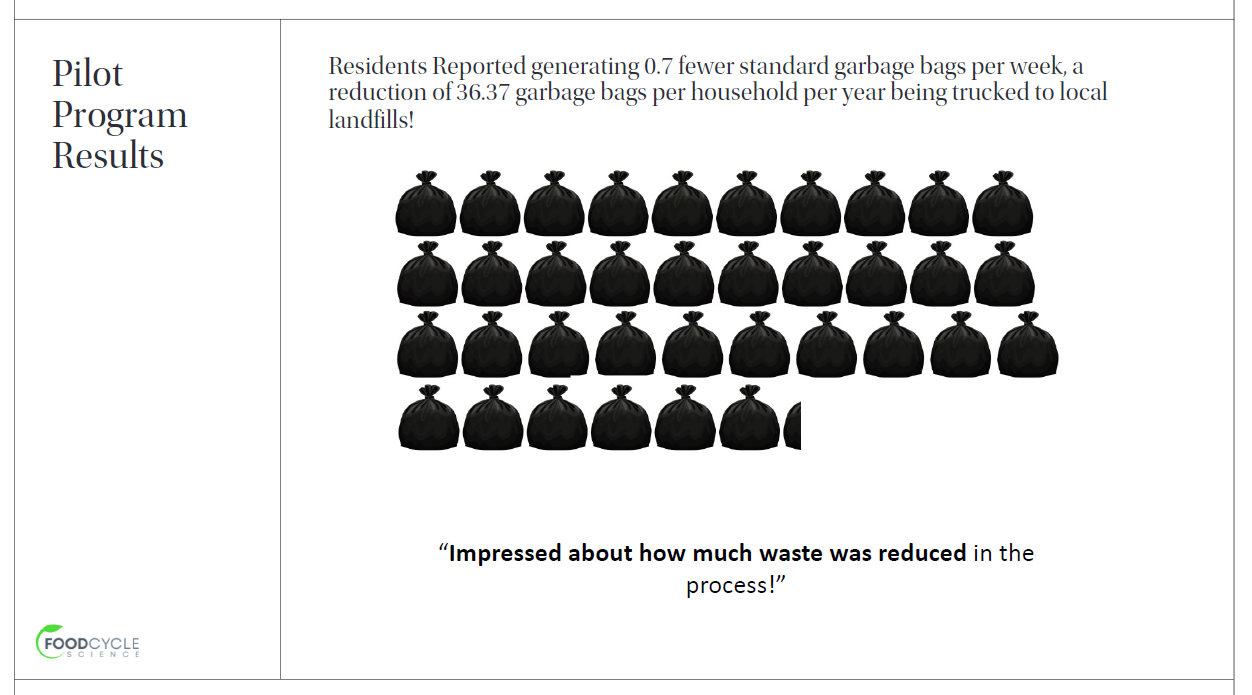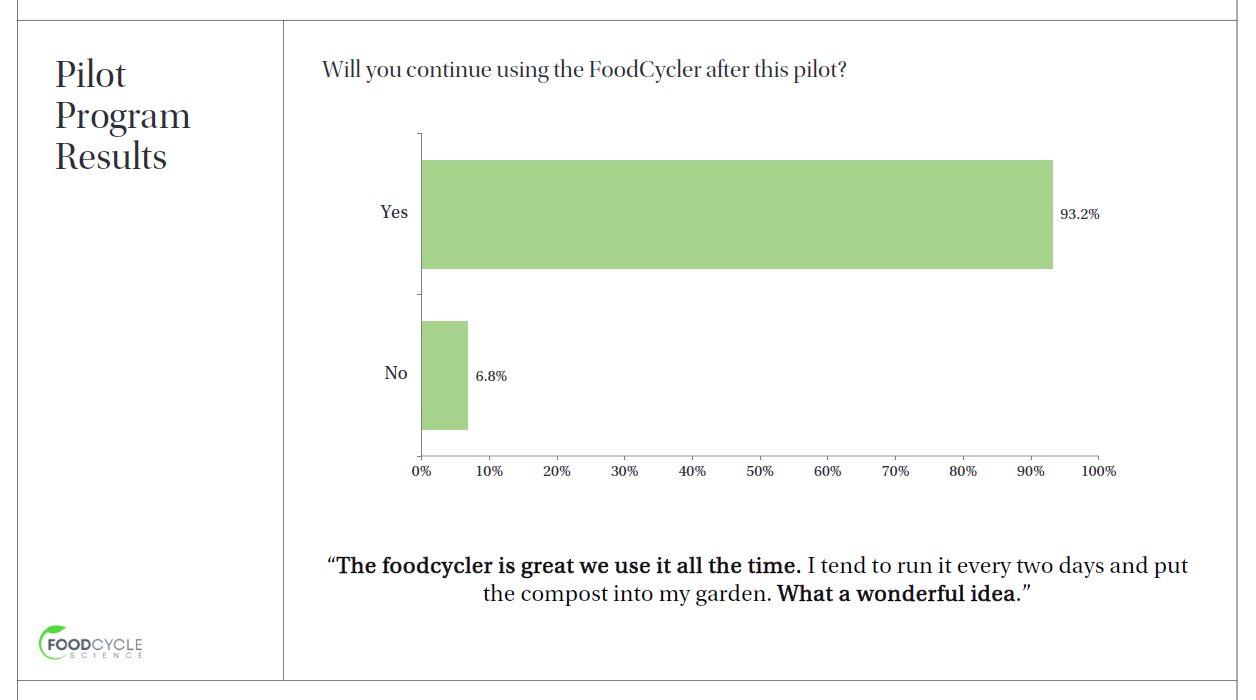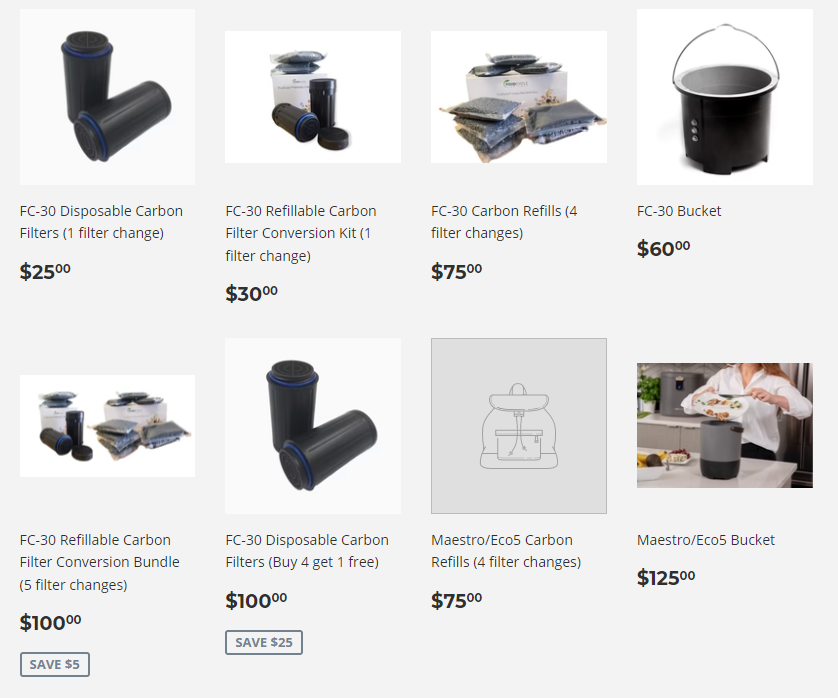FoodCycle Pilot Project 2023: Key Findings and Achievements
We are thrilled to share the great outcomes of the FoodCycle Pilot Project, which took place from June to September 2023. This 12-week initiative aimed to address food waste in our community and promote sustainable practices. Here are the significant findings:
130 Participating Households: A strong community effort with 130 households actively participating in the FoodCycle Pilot Project.
Financial Impact: The net cost to the Municipality for this program was $13,000 + tax.
Machine Preferences:
- 60.4% of participants used a 2.5L capacity machine.
- 39.6% of participants opted for a 5L capacity machine.
Cycling Habits:
- Average of 3.31 cycles per week for the 2.5L machines.
- Average of 3.71 cycles per week for the 5L machines.
Waste Diversion and Environmental Impact:
- The program resulted in diverting 33.3 metric tons of food waste from landfills annually, involving all 130 participating households.
- This equates to a reduction of 36.37 garbage bags per household per year.

User Feedback:
- 85.4% of participants expressed that the program motivated them to waste less food.
- An overwhelming 86.4% would recommend the FoodCycler to others.
- A remarkable 93.2% expressed their commitment to continuing the use of the FoodCycler even after the pilot program concluded.

We extend our heartfelt gratitude to each participant for contributing to the success of the FoodCycle Pilot Project. Your dedication has not only reduced food waste but also made a positive impact on our environment.
Thank you for being a part of this sustainable journey!
If you are interested in participating in this program in the future or have any questions, email us at edo@dtr.ca.
About the FoodCycler
Founded in 2011, FoodCycle Science is a Canadian company that produces residential and commercial devices that use electricity to compost food waste into a finished compost product quickly.
FoodCycle Science's residential device is called FoodCycler™. It is 32 cm x 27.94 cm x 36.07 cm (approximately the size of a breadmaking machine). It can hold up to 1 kg (2.5 litres) of food waste. Using electricity, the device dries and grinds food waste (fruit cores, vegetable peels, dairy, chicken bones, and more) into a dry, odourless, nutrient-dense by-product significantly reduced in weight and volume from its unprocessed state. The end product is free from bacteria, and weed seeds and food-borne pathogens are eliminated in the process.
Each "cycle" of composting takes approximately four to eight hours. The FoodCycler™ uses 0.8 kWh of electricity (approximately 10 cents per composting cycle).
The FoodCycler™ can be viewed as a complement to (not necessarily a replacement for) backyard composting or digesters.
Pilot project funding
This pilot project is funded by:
- District of Tumbler Ridge
- FoodCycle Science
- Impact Canada
FoodCycler™ FAQs
Questions on operation or troubleshooting?
FoodCycler™ Science provides customer service support through their support line, 1-855-367-6692, and email address info@foodcycler.com
Operating Manual and Troubleshooting Guide.
Accessory products can be ordered here.
